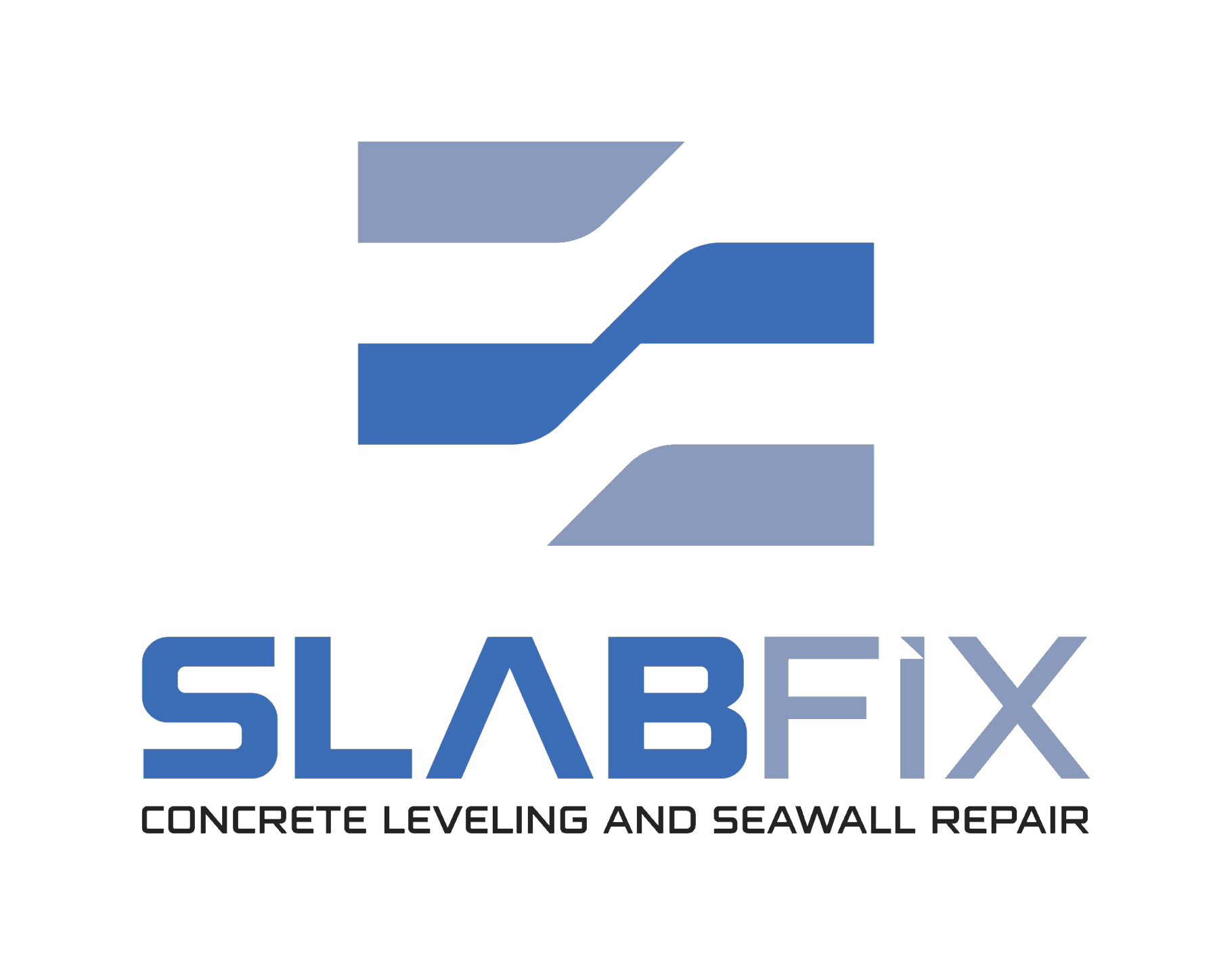Frequently Asked Questions
Got questions? Find the answers you need to make informed decisions about your concrete leveling needs here.
Polyurethane is a liquid foam made of environmentally friendly materials that is injected as a liquid underneath the settled concrete then it sets up forming a rigid foam.
Polyurethane foam jacking is considered a permanent solution for uneven concrete. Polyurethane foam is a high density material in addition to being lightweight which reduces the overburden on the unstable soils under the concrete. Unlike mudjacking, polyjacking lasts much longer, and you don’t have to redo the lifting every few years.
Poly jacking and mud jacking have distinct differences. Polyurethane foam jacking offers a clean solution as the foam equipment is sealed to the repair area, while mud jacking can be messy due to on-site mixing and slurry transportation. Poly jacking requires smaller ⅜” holes, resulting in less noise, whereas mud jacking typically involves drilling larger 4-inch holes. These factors make poly jacking an efficient alternative for those seeking minimal mess and reduced noise during the repair process.
Poly jacking offers a convenient solution for repairing settled concrete without any trucks or equipment on your lawn. The repairing truck is parked on the street, and the pumping hose is run directly from the truck to the repair site. This process ensures that your lawn remains untouched, alleviating any concerns about damage or mess after the work is completed.
Polyurethane has a quick cure time which makes it better than mudjacking. Foot traffic is usually allowed during the polyjacking operation. In addition it can be driven on 30 minutes or less after the work is completed.
One of the many advantages of the polyurethane foam that it is waterproof. You don’t need to worry about wet days. Also you can use it for fixing the uneven concrete of the wet nature places such as pool decks.
Polyurethane foam is absolutely environmentally friendly as it is made from over 40% recycled materials. Our polyurethane foam doesn’t include toxic chemicals or flammable components.
While Polyurethane foam jacking provides an affordable solution for addressing sunken concrete, the cost of the service varies depending on the project’s specific requirements. To determine the most cost-effective solution for your concrete repair needs, please contact us to schedule an inspection and receive a free quote.
The effectiveness of polyjacking depends on the condition of the concrete surface. If the concrete is in good shape, polyjacking is indeed the recommended option. However, if the top surface is fragmented or heavily cracked, alternative solutions may be more appropriate.
To determine the best approach for your specific case, we invite you to contact us for a professional assessment. Our experienced team will evaluate the condition of your concrete and provide personalized recommendations based on your requirements.
If you are interested in our concrete leveling service, our specialists will visit you to assess the project and provide an estimate of the repair area free of charge.
The team at Slab Fix provides high-quality, affordable concrete leveling and seawall repair services across Central and Eastern Florida. Click here see our list of areas we serve.
Yes, it is possible. Using a 5’ or longer rod, a specially formulated single component polyurethane foam (Tera-Lok 24-120) is injected into the soil behind the seawall will fill the voids, close the cracks and open seams in the wall and stabilize the soil, thus strengthening the wall.
No, this process is minimally invasive, with no heavy equipment is used. Only a high-pressure pump is used to inject the material into the soil trough ½” Stainless Steel pipe.
A typical residential seawall will take about one day, and a large complex project may take additional time.
It costs about %10 to %15 compared to complete replacement of the wall.
Yes, the Tera-Lok 24-120 is environmentally safe.
Don’t See Your
Question Here?
Our expert team is happy to answer your concrete leveling inquiries.

